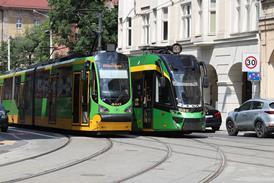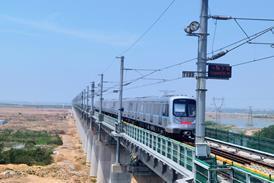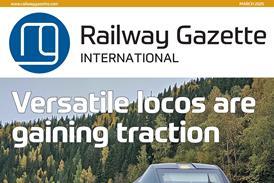OV-Chipkaart roll-out creeps forward (RG 1.09 p41)
Sir - Your interesting report on progress with the Dutch national smart card scheme should serve as a warning to those involved with the UK government’s smart card strategy. This hopes to achieve a similar result through a common ITSO specification covering pensioners’ bus passes and an odd assortment of rail franchise commitments.
In the Netherlands, complexity and an absence of leadership have contributed to delay and cost overruns. Consumer groups have now withdrawn their support, which is not quite what could have been expected given the wide acceptance of the well-established strippenkaart common ticketing system.
In Britain only a minority of rail operators, with the most recently awarded franchises, are required to introduce ITSO smart cards, and on the basis of a number of discrete projects. Some of these are long distance businesses, for which smart cards do not seem to be the most relevant or cost-effective ticketing solution. Such a confused policy has already led to perverse outcomes, as in recent attempts to install ticket barrier gates at stations where they are manifestly inappropriate, and unsuitable for the traffic handled or the complexity of the fares structure.
This is all a marked contrast to Transport for London’s successful Oyster project, led by a single client and delivered on time and budget by one consortium of suppliers. The logical extension of this functioning, albeit proprietary, system to suburban rail services beyond the confines of Greater London is being blocked by the government, lest it should undermine its own project which is still not fully worked up, and has made even slower progress than the Dutch.
Perhaps it will take more delay, serious cost over-runs and a lack of consumer confidence before common sense prevails.
Richard Malins
Transport Investigations Ltd
March, Cambridgeshire, UK.




















